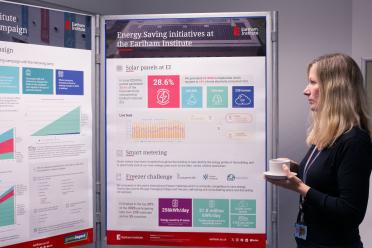Green Impact is a United Nations award-winning programme designed to support environmentally and socially sustainable practice within organisations. It empowers staff and students to create positive sustainability changes within their workplaces and at home.
The Earlham Institute joined the Green Impact scheme in 2022, joining efforts with the John Innes Centre, Quadram Institute, The Sainsbury Laboratory and Norwich Bioscience Institutes (NBI) Partnership.
Volunteers from across the Institute - including Operations, Research Faculty, and the Technology Platforms - worked together on a range of initiatives and activities that were part of the submission.
The team were also recognised for a special project award which saw the Institute run an energy “switch-off” campaign.
Led by Jim Lipscombe, Senior Research Assistant in the Technical Genomics Group, the project involved measuring electrical consumption of devices in offices and labs - while noting any devices left switched on - and encouraging staff to switch off unused devices.
“We were delighted to discover that the staff and students at the Earlham Institute are already doing a great job of switching off devices and have a good awareness of the issue. However, opportunities for improvement were certainly evident,” said Jim.
“We have about 120 staff at Earlham Institute. If just 1 in 10 of us left our computers on all the time we would waste enough electricity to power an average UK household for 9 months.”
